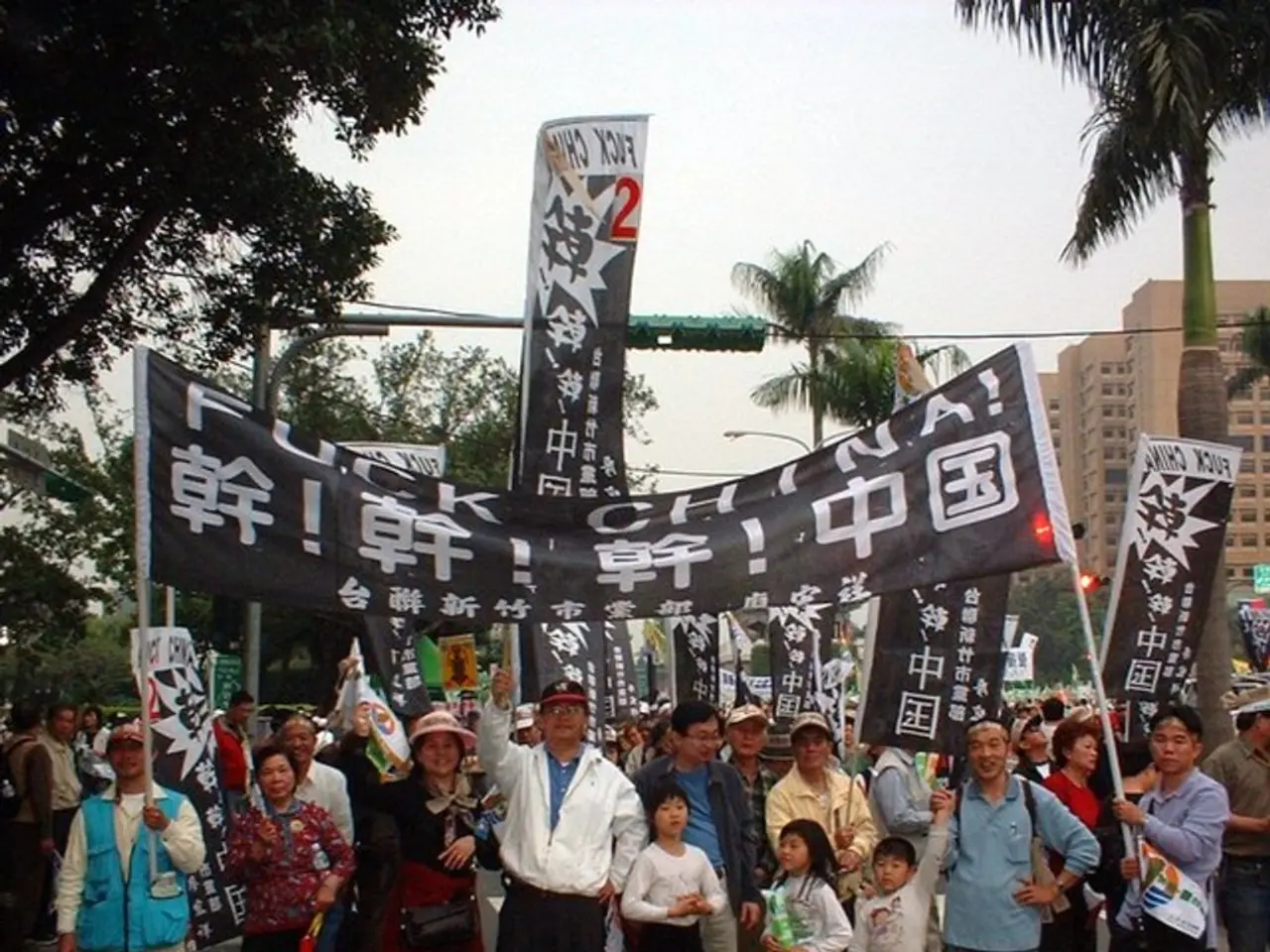North Korea and Russia Deepen Military Collaboration on Drones
Russia may potentially recruit around 25,000 workers from North Korea to manufacture drones within its territory.
In a worrying development for regional and global security, North Korea and Russia are strengthening their ties in the military-industrial sector, concentrating on the mass production of drones. Reports from reliable sources, such as Japan's public broadcaster NHK, West, and Russia, confirm that tens of thousands of North Korean workers are being dispatched to a drone factory within the Alabuga Special Economic Zone, a central Russian republic. The workers are expected to augment the production line and learn drone operating techniques.
This collaboration has deep historical context and far-reaching implications for regional and international security.
A Historical Look at Collaboration
- Strategic Partnership Development: Remarkably, in June 2023, North Korea and Russia signed a Comprehensive Strategic Partnership Treaty, which included mutual pledges of military assistance. This agreement set the stage for increased military and industrial cooperation between both nations.
- Troop Deployment to Russia: Since late 2024, Russia received around 11,000 North Korean troops, mostly combat engineers and infantry, deployed to the Kursk region near Ukraine’s border to assist Russian military operations. These troops have suffered substantial casualties, with over 6,000 reported killed, wounded, or missing in the fighting. The deployment received approval from North Korean leader Kim Jong Un and acknowledgment from Russian officials.
- Drone Production Collaboration: Building upon this military cooperation, North Korea is now sending roughly 25,000 workers—mainly civilian laborers—to a drone manufacturing facility in Russia’s Alabuga Special Economic Zone in Tatarstan. According to sources like the "Kyiv Independent” and Facebook, the factory focuses on producing the Shahed family of attack drones—a critical asset for Russia in its ongoing conflict against Ukraine. The laborers’ role involves boosting production and mastering the operation and assembly processes.
- Technology Transfer: Beyond manpower exchanges, Russia is providing North Korea with advanced technology for Shahed kamikaze drone production, offering drastic improvements to North Korea's ballistic missiles, effectively transforming them from relatively unreliable weapons to precision-strike systems. Talks are underway to establish drone production capabilities on North Korean soil, signaling a two-way technology and expertise transfer in drone technology.
Implications
- Enhanced Military Capabilities for North Korea: Access to Russian drone technology and training will dramatically enhance North Korea’s Unmanned Aerial Vehicle (UAV) capabilities. They will be better equipped to overwhelm South Korean air defenses and strike critical infrastructure with deadly precision, potentially altering the military balance on the Korean Peninsula.
- Support for Russia’s War Effort: The cooperation between North Korea and Russia helpsplugins related to embedding code/scripts into North Korean workers will enhance Russia’s drone production capacity, offsetting the significant losses in personnel and equipment incurred during the ongoing conflict in Ukraine.
- Regional and Global Concerns: The escalation in drone production and improved missile technology could destabilize security not only in East Asia but also in Europe due to Russia’s ongoing engagement in Ukraine. The emerging military alliance between Moscow and Pyongyang poses a dual-continent danger, as it allows transfers of military technology and personnel, escalating both countries’ war capabilities.
- Long-term Military Alliance Possibilities: These developments are the results of direct, high-level meetings between Kim Jong Un and Vladimir Putin and could represent an evolving military alliance, offering mutual advantages such as military training and manpower for Russia—as well as advanced weaponry and operational expertise for North Korea.
Ultimately, the North Korea-Russia drone factory collaboration represents a significant escalation of military ties, transforming regional military balances, and contributing to the broader conflict dynamics in Ukraine, with far-reaching consequences for global security. [1][2][3][4]
Enrichment Data:
Overall:
North Korea and Russia are deepening their military-industrial collaboration, with a focus on the mass production of drones. Tens of thousands of North Korean workers are being deployed to Russia’s Alabuga Special Economic Zone, resulting in significant geopolitical implications.
History of Collaborations
- Strategic Partnership Development: In June 2023, North Korea and Russia signed a Comprehensive Strategic Partnership Treaty, including mutual military assistance commitments. This agreement set the stage for increased military and industrial cooperation.
- Troop Deployment to Russia: Since late 2024, Russia received around 11,000 North Korean troops, mostly combat engineers and infantry, deployed to the Kursk region near Ukraine’s border to support Russian military operations. North Korean troops suffered substantial casualties, with over 6,000 reported killed, wounded, or missing in the fighting.
- Drone Production Collaboration: Building on this military cooperation, North Korea is deploying approximately 25,000 workers to an Alabuga Special Economic Zone drone factory in Tatarstan. The workers will assist in drone production and learn drone assembly techniques.
- Technology Transfer: Beyond manpower exchanges, Russia provides North Korea with advanced technology for Shahed kamikaze drone production, offering drastic improvements to North Korea's ballistic missiles. Conversations are ongoing to establish drone production capabilities on North Korean soil, signifying a two-way transfer of drone technology and expertise.
Implications
- Enhanced Military Capabilities for North Korea: Access to Russian drone technology and training will magnify North Korea's Unmanned Aerial Vehicle (UAV) capabilities, potentially altering the military balance on the Korean Peninsula.
- Support for Russia’s War Effort: The North Korean-Russia collaboration assists Russia in offsetting significant losses in personnel and equipment caused by ongoing military operations in Ukraine.
- Regional and Global Concerns: Destabilization of security in both East Asia and Europe results from the expansion in drone production and improved missile technology. The evolving military alliance between Moscow and Pyongyang could lead to increased transfers of military technology and personnel, further escalating both countries’ war capabilities.
- Potential for Long-Term Military Alliance: The expanded military ties and high-level meetings between Kim Jong Un and Vladimir Putin may signal an evolving military alliance, offering mutual benefits in military training, manpower, and advanced weaponry when needed.
In summary, the North Korea-Russia drone factory collaboration, manifesting through labor deployment, technology transfer, and strategic partnership treaties, represents a significant escalation of military ties. It's shifting regional military balances, contributing to broader conflict dynamics in Ukraine, and having far-reaching consequences for global security. [1][2][3][4]
In the light of this development, it is vital to acknowledge the role of the community policy in addressing the escalating military cooperation between North Korea and Russia, particularly in the field of drone technology. This collaboration, as highlighted in the general news, war-and-conflicts, and politics sectors, is concerning due to its potential impact on regional and global security.
Moreover, it is essential for employment policies to address the exploitation of labor forces, such as the tens of thousands of North Korean workers dispatched to a drone factory within the Alabuga Special Economic Zone, Russia. The misuse of workers in such a sensitive and strategic context has far-reaching implications for international labor standards and human rights.




